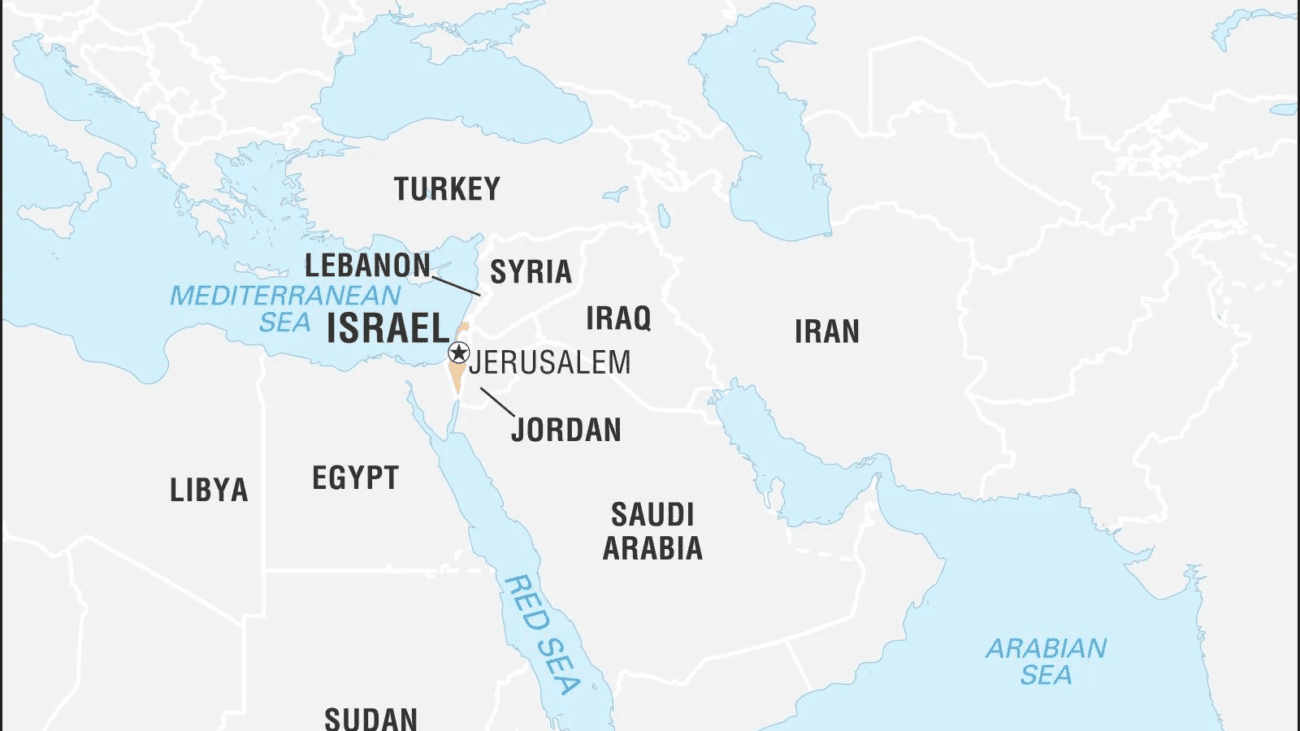Is Israel Planning to Expand More? Can They Succeed?


The question of Israel’s territorial expansion has to do with historical conflict over several decades, the politics of the region, and the issue of international law. It becomes a very emotive and contentious issue for millions all around the world. To understand the gravity of whether Israel is indeed set to expand its territory further and the prospects of it succeeding, we must delve into the historical background, the developments that have unfolded in the contemporary age, and the implications brought about by this issue.
A Brief Historical Background
Israeli history of occupation dates back to the 1948 Arab-Israeli War after the establishment of the State of Israel. Through a succession of wars and negotiations, Israel has progressively increased its territorial boundaries, but most significantly after the 1967 war, popularly known as the Six-Day War. In that conflict, Israel occupies major geographical areas of the West Bank, the Gaza Strip, and East Jerusalem, among others, that remain central to current disputes.
The expansion never occurred without controversy. Though Israel views many of its gains in territory as necessary to protect its interests, these have become stratified into violations of Palestinian rights and international law, most seriously in the Geneva Conventions.
Recent Developments
There have been discussions regarding Israel’s expansion and their activities in the West Bank, which are major settlement construction. The settlements, with all their manifestation of an illegal component under international law, can be regarded to increase on a daily basis despite their share of condemnation by the United Nations and other human rights groups. The Israeli government, spearheaded by Prime Minister Benjamin Netanyahu and several right-wing leaders, has, on several occasions, communicated the intention to annex parts of the West Bank.
Netanyahu has for a long time argued Israel has both a historical and security right to those lands and, in the recent past, pushed through annexation plans. These annexation plans have been on hold since 2020 in a framework of the Abraham Accords, an agreement brokered with the U.S. for normalization of relations between Israel and several Arab states. Annexation plans have never been entirely off the table, and there is speculation Israel may continue pursuing its expansion agenda.
The International Response
The international community has not been consistent in its opinion regarding territorial ambitions that Israel has been displaying. For example, while some countries, such as the United States, under some of its administrations, appears to have tacitly encouraged Israeli settlement activities; at another level, the same country relocated its embassy to Jerusalem in 2018 in a move widely perceived as an abdication of its sovereignty, based on the recognition of the sovereignty of the state of Israel over this city. Other European countries, as well as the United Nations, have frequently condemned such acts as violations of international law.
The expansion of Israel to include East Jerusalem Palestinians fear as an actual threat to their existence. “For them, it is not just land but rather an identity, the future, and hope for a peaceful resolution,” Nover reported. Their eventual continuation would make it almost impossible for any two-state solution to exist, deepening the division between Israelis and Palestinians.
Can Israel Succeed?
Many factors will determine whether Israel can succeed in its expansion plans, such as domestic political will, international response and regional dynamics.
Internal Politics
The internal political landscape of Israel makes a great difference. That parliament is heavily divided and public opinion is fluid would greatly hinder the ability to implement any more expansionist policies by the government. The right-wing bloc has been in favor of such policies, but other parties have expressed resistance, which could increase if international pressure rises.
International pressure: How much Israel can tolerate the resultant international criticism goes a long way in determining its expansion. While it could stand the criticism of the UN and the human rights groups earlier, consistent economic sanctions or diplomatic isolation from its key allies would check the expansions.
Regional Responses: The Abraham Accords marked a sea change in Israel’s relations with certain Arab states. However, further expansion of this might jeopardize these newly forged ties. States like the UAE, Bahrain, and even Saudi Arabia would be reconsidering their foreign policies if Israel went ahead with the annexation of some of those big Palestinian territories.
Security Issues: Expansion entails a great rise in the probability of terrorism. Palestinian reaction towards further annexation may lead to heavy violence that is witnessed at numerous times during different Intifadas. Israel will face the consequences of security, which raises the possibility of further destabilization in the region.
The Human Dimension
In this politics strategy and international diplomatic measures, the most important thing is not forgetting the human dimensions of this struggle. Further annexation of Palestinian land will not improve the fate of people residing in the area. For Palestinians, it further means displacement, loss of livelihood, and totally losing their cultural and historical identity. For Israelis, it just means that they are already living in an uneasy state of war, where peace is just within view but never accomplished.
Every new settlement, every new expansion brings another layer of complexity to a conflict that has caused unspeakable suffering on both sides. For many people, peace is a reality that is miles away, and in the absence of a solution to the territorial issues at hand, true reconciliation could also prove impossible.
Conclusion
Is Israel going to continue expanding? The signs are that the chance is still on the table. But whether they can win is much more complicated. That will depend on a very delicate balance between internal politics, international relations, and the harsh realities on the ground. Clear, however, is that further expansion will not come without enormous consequences for Israel, not to mention the Palestinians who live with daily doses of this long and painful conflict.
After all, it is not just a struggle for territory it is people, people yearning for a fearless future, and it is about the region riven by violent conflicts for far too long. Whatever happens next, the world will be watching at arm’s length and so will those whose lives hang in the balance.
Read More News here: https://whatshappening.pk/chief-justice-qazi-faiz-isa-viral-video-controversy/





